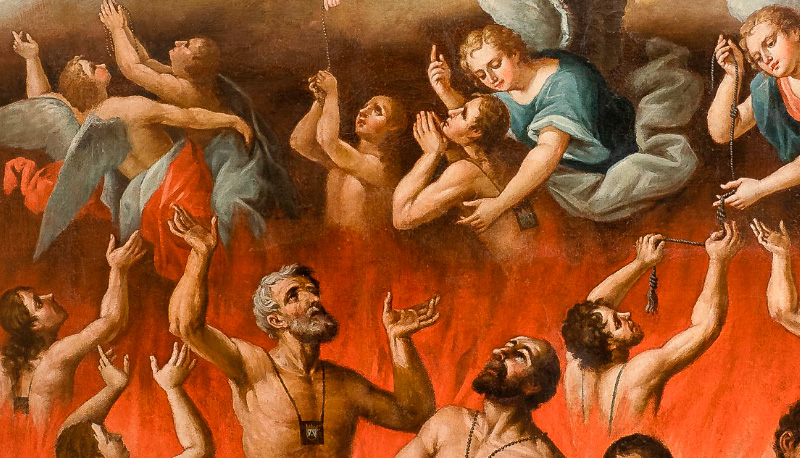
The Catechism of the Catholic Church defines purgatory as a “purification, so as to achieve the holiness necessary to enter the joy of heaven,” which is experienced by those “who die in God’s grace and friendship, but still imperfectly purified” (CCC 1030). It notes that “this final purification of the elect . . . is entirely different from the punishment of the damned” (CCC 1031).
The purification is necessary because, as Scripture teaches, nothing unclean will enter the presence of God in heaven (Rev. 21:27) and, while we may die with our mortal sins forgiven, there can still be many impurities in us, specifically venial sins and the temporal punishment due to sins already forgiven.
What Happens in Purgatory?
When we die, we undergo what is called the particular, or individual, judgment. Scripture says that “it is appointed for men to die once, and after that comes judgment” (Heb. 9:27). We are judged instantly and receive our reward, for good or ill. We know at once what our final destiny will be. At the end of time, when Jesus returns, there will come the general judgment to which the Bible refers, for example, in Matthew 25:31-32: “When the Son of man comes in his glory, and all the angels with him, then he will sit on his glorious throne. Before him will be gathered all the nations, and he will separate them one from another as a shepherd separates the sheep from the goats.” In this general judgment all our sins will be publicly revealed (Luke 12:2–5).
Augustine said in The City of God that “temporary punishments are suffered by some in this life only, by others after death, by others both now and then; but all of them before that last and strictest judgment” (21:13). It is between the particular and general judgments, then, that the soul is purified of the remaining consequences of sin: “I tell you, you will never get out till you have paid the very last copper” (Luke 12:59).
The Catholic Church, Purgatory, and Money
One argument anti-Catholics often use to attack purgatory is the idea that the Catholic Church owes the majority of its wealth to the doctrine of purgatory. But the numbers just don’t add up.
When a Catholic requests a memorial Mass for the dead—that is, a Mass said for the benefit of someone in purgatory—it is customary to give the parish priest a stipend, on the principles that the laborer is worth his hire (Luke 10:7) and that those who preside at the altar share the altar’s offerings (1 Cor. 9:13–14). In the United States, a stipend is commonly around five dollars; but the indigent do not have to pay anything. A few people, of course, freely offer more. This money goes to the parish priest, and priests are allowed to receive only one such stipend per day. No one gets rich on five dollars a day, and certainly not the Church, which does not receive the money anyway.
But look at what happens on a Sunday. There are often hundreds of people at Mass. In a crowded parish, there may be thousands. Many families and individuals deposit five dollars or more into the collection basket; a few give much more. A parish might have four or five or six Masses on a Sunday. The total from the Sunday collections far surpasses the paltry amount received from the memorial Masses

